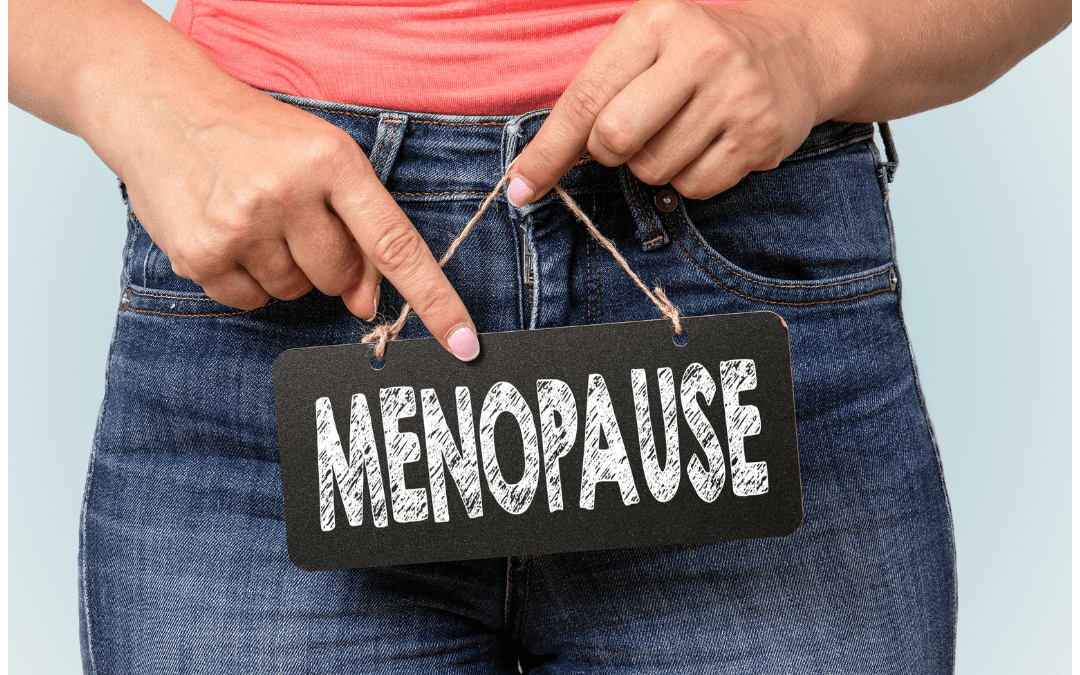Perimenopause is not a one-size-fits-all experience. For some women, it begins in their late 30s; for others, it arrives in the mid-40s or later. No matter when it starts, this transition—marked by fluctuating hormone levels and a gradual decline in estrogen and progesterone—can cause a wide range of physical and emotional changes.
Hot flashes, irregular periods, night sweats, mood swings, and digestive changes are just a few of the symptoms that can make this time feel overwhelming. While hormone replacement therapy (HRT) is often recommended, a growing number of women are looking for natural ways to manage their symptoms. Some of these strategies are backed by science. Others are less helpful, or even counterproductive.
So, what truly helps—and what doesn’t?
Understanding the Shifts Behind the Symptoms
Perimenopause begins as the ovaries start to produce less estrogen. This hormone affects nearly every system in the body, including the brain, bones, skin, and gastrointestinal tract. Progesterone, which helps regulate sleep and anxiety levels, also begins to wane.
This hormonal turbulence affects neurotransmitters such as serotonin, contributing to mood swings and anxiety. It also impacts cortisol, the stress hormone, making some women more sensitive to life’s daily pressures. Energy dips, changes in appetite, and brain fog can all stem from these internal shifts.
At the same time, your gut is feeling it too. Hormonal changes alter the makeup of the microbiome, which can lead to bloating, sluggish digestion, or new food sensitivities.
What Actually Helps
Whole Food Nutrition

A nutrient-rich diet can be your most powerful daily tool. Foods rich in omega-3 fatty acids—such as chia seeds, walnuts, and wild salmon—support brain function and reduce inflammation. Magnesium-rich foods like leafy greens and seeds help with sleep, while calcium and vitamin D are essential for bone health.
Phytoestrogens—naturally occurring plant compounds found in flaxseed, soy, lentils, and chickpeas—may help ease symptoms by gently mimicking estrogen. Some studies suggest that these foods, when consumed regularly, can reduce the intensity of hot flashes and support hormonal balance.
Staying hydrated and including plenty of fiber also promotes smoother digestion and supports the gut microbiome.
Gentle Movement and Consistent Exercise
Exercise has long been known to reduce menopausal symptoms. But more isn’t always better. Perimenopausal women often benefit most from a blend of strength training, low-impact cardio like walking or swimming, and restorative practices such as yoga or Pilates.
Physical activity can improve sleep quality, balance blood sugar levels, reduce anxiety, and support cardiovascular and bone health—all key concerns during this time of hormonal change.
Stress Regulation
Because cortisol levels become more reactive during perimenopause, managing stress becomes more critical than ever. Techniques like diaphragmatic breathing, guided meditation, or even five minutes of silent sitting can significantly reduce stress-induced hormone surges.
Over time, consistent mindfulness practices have been shown to reduce the intensity and frequency of perimenopausal symptoms like anxiety and insomnia. Journaling, artistic expression, and even walking in nature offer valuable outlets that help regulate your nervous system.
Sleep Support

Quality sleep often becomes elusive during perimenopause. Falling asleep and staying asleep can be difficult due to fluctuating progesterone and estrogen levels. Creating a predictable evening routine, minimizing blue light exposure before bed, and keeping the bedroom cool can all make a noticeable difference.
Natural supplements like magnesium glycinate or herbal teas (chamomile, valerian, or passionflower) may be supportive—but should be discussed with a healthcare provider, especially if other medications are in use.
What Doesn’t Help (And Might Hurt)
Some popular but unproven natural remedies circulate widely online, promising quick relief without real evidence. Over-the-counter “hormone balancers” or non-prescription estrogen creams may sound appealing, but their safety is not always well documented. Always check with a medical professional before using any hormone-mimicking products.
Extreme diets, detox programs, or excessive fasting may initially seem energizing but can disrupt metabolic function and worsen hormonal imbalances. Restrictive eating can also reduce the diversity of your microbiome, which is counterproductive to long-term health.
Why the Gut is Central to This Transition
One area of growing interest is the role the gut microbiome plays during perimenopause. As estrogen declines, so does microbial diversity—particularly the populations of bacteria that help metabolize and regulate estrogen itself. This means that an imbalanced gut can worsen hormonal swings, intensify inflammation, and even increase the risk of weight gain or mood disorders.
A recent study published in Current Nutrition Reports found that probiotic supplementation may have a positive effect on estrogen metabolism and inflammation in women going through menopause, offering a safe and effective way to manage certain symptoms.
This is where a targeted probiotic supplement like bioma for menopause can make a significant difference. With strains designed to support not just digestion but also immune health and microbial balance, this kind of daily support helps ease the internal transition without introducing synthetic hormones.
Empowerment Through Knowledge and Support
Perimenopause doesn’t have to feel like a chaotic unraveling. It can be a chance to tune into your body more deeply, respond with supportive habits, and discover what truly works for you. The key is to adopt a holistic view—one that recognizes the interconnectedness of hormones, gut health, sleep, stress, and daily nourishment.
Instead of chasing fads or fighting symptoms, focus on building resilience from the inside out. Whether through movement, food, or microbiome support like bioma for menopause, natural solutions do exist—and they can be both simple and effective.
When women understand what’s happening in their bodies and feel empowered to respond with intention, this transitional phase becomes far less daunting—and even an opportunity for renewal.







